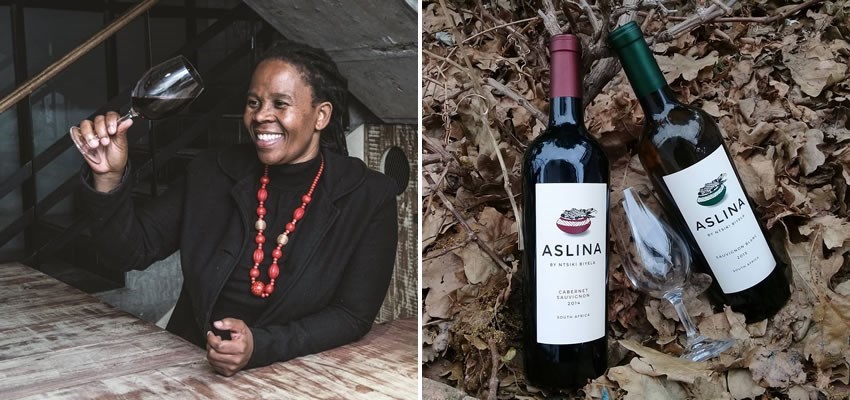The first classes Ntsiki Biyela took at Stellenbosch University were very difficult for her. Not just because she knew nothing about the subject, but also because they were in Afrikaans, a language she didn’t speak.
It was a long way from Mahlabathini, her rural village home in Kwa-Zulu Natal, but it was an opportunity she was going to take full advantage of.
After matriculating, Ntsiki wanted to change her life. During a year as a domestic worker, a jointly sponsored SAA initiative inviting just a few applications from each rural area to study winemaking interested her. But what sold it to Ntsiki was the word ‘study’ in the title. Ntsiki wanted to learn, as she didn’t know what winemaking was.
But classes were in Afrikaans. “I’ll learn it,” she told herself.
She left family and friends, and five years later Ntsiki had a BSc in Agriculture (Viticulture and Oenology). Her path and choices at university weren’t so easy. "We had tutors at first to explain what the class had been about as we couldn’t follow much," says Ntsiki. At first, “Professor Eben Archer inspired me so much that I wanted to be a viticulturist, but then, Charl Theron was so wonderful that I wanted to be a winemaker!”
After graduating Ntsiki spent 13 years at Stellekaya. She spent harvests in Tuscany and Bordeaux. Moreover, she was part of a joint venture with Napa Valley winemaker Helen Kiplinger and Mika Bulmash in creating their own wine called Suo (‘stitching’ in Latin) through the ‘Wine for the World’ initiative.
By 2014 Ntsiki was creating 4 500 bottles of Cabernet Sauvignon under her own label. she called it "Aslina", after her beloved grandmother.
“Why not your name?” I ask.
“It would not have the same meaning," she replies, "Who was behind me is important. There are roots for all of us; we must acknowledge those roots, they got us here."
Though she has passed, Aslina is still present for Ntsiki, "when I’m in a corner, I talk to her, 'Why are you not here?' I ask".
Ntsiki tells of the time her grandmother first tasted her wine – a gold medal winner from Stellekaya: "She wasn’t used to the taste, but the pride and joy she showed me…"

Ntsiki’s roots drive her still:
"Since addressing women all over, I always ask how I can bring change to my village. There is little there, not even communication. I am negotiating now to provide computers, internet and instruction to young people there. I want to build an information centre to be the heart of the community."
Ntsiki has much of her grandmother in her. Aslina taught her values: "Not what schools teach, but something inside, just by example, parents discipline children, grandparents teach by being."
Aslina had very little but still looked after and fed often eight or more children at a time, "she never asked how, she did it with love," says Ntsiki.
When Ntsiki was distracted by boyfriends and possibly settling down, Aslina would say, "Ugh, Ugh, no, no, that is not your path".
Plans are to grow from the present four wine ranges and increase sales in South Africa – currently some 80% plus is exported (including Canada, Taiwan, Germany, Ghana and Japan) – and one day to have her own cellar.
The emblem on her bottles is a calabash, a clay pot holding beer villagers would drink from together. "When I have my cellar, you will be tasting all my wines from a calabash." And maybe an MCC in the future, "we need to celebrate", she says.
From Mahlabathini to Stellenbosch, via France, Italy and the US. From villager to business owner. From village school to graduate and public speaker. From non-wine drinker to winemaker and one of the ‘world's top 20 most Innovative Women in Food and Drink’ (Fortune’s Food & Wine) and now board member of the Pinotage Youth Development Academy, ("Wow, those students," says Ntsiki, "It is a pleasure and though I am strict with them [Aslina I wonder?] it is so rewarding; we don’t just teach wine, they learn life lessons").
Despite the challenges of wine production today, Ntsiki is already making around 17 500 bottles a year. "It was the best decision I ever made," she says.
A story of inspiration, and one where her grandmother has been so instrumental. Her Bordeaux blend is named "Umsasane", her grandmother’s nickname used by all the village. It is the Acacia tree, strong, comforting, shading and protecting others. As Ntsiki has said in one of many media interviews, "do everything with love".